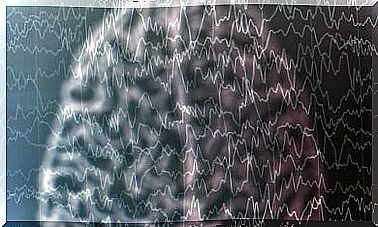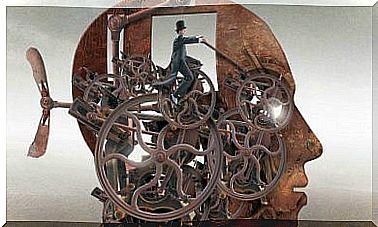How Does Insomnia Affect The Brain?

Poor sleep makes us feel tired during the day. On the other hand, among the consequences of insomnia we find that it causes irritability and acts as a speaker or enhancer for emotions that do not help us much, such as frustration.
Thus, different studies have found that sleep disorders can have consequences on a physical and psychological level. Derivations that, if not treated properly, compromise our performance.

What is insomnia?
It is one of the most common disorders today. It is characterized by subjective difficulties, caused by different factors such as a poor quality of sleep or frequent awakenings during the night.
It has been found that people who have these conditions have a hyperarousal , that is, a brain hyperarousal. This can be reflected in improved sensory processing during the onset or course of sleep.
As a consequence, the person becomes vulnerable to environmental disturbances. Therefore, it is more prone to waking up and interrupting the sleep cycle.
The consequences of insomnia on our cognitive functions
One of the most common consequences that we find in people with insomnia is the presence of fatigue. A physical fatigue, but also mental.
Attention
One of the functions affected is attention. In this case it shows difficulties in three specific aspects:
- Focused attention. It is difficult for the person to focus on the important aspects, as accessories become more powerful distractors.
- Sustained vigilance / attention. The person has trouble concentrating.
- Processing speed. The cognitive functions of the person become slower and more imprecise.
Memory
In the case of memory, studies have focused on two types of memory. The first is episodic memory. This is a type of declarative memory that is consciously expressed and is related to events located in a space and time.
With it, we can recall details of a past birthday or the first date with our partner. In the case of people with insomnia, there are difficulties in fixing memories of these characteristics.
The second type of memory studied is procedural. It is defined as a non-declarative, non-voluntary memory, which is manifested by a change or development of a behavior. This type of memory is responsible for remembering activities, such as driving or riding a bicycle. In this case, due to the problems in the consolidation of sleep in REM phase, difficulties appear to fix / automate procedural information.
Executive functions
As we know, executive functions are in charge of the most complex tasks of our brain. They can be compared to the conductor, who is in charge of coordinating all the musicians.
In the case of people with insomnia, some of these functions have been found to be diminished. First, we will talk about the difficulty of alternating attention between two activities. It occurs as a consequence of the hyperarousal that people with insomnia have due to lack of sleep.
The aforementioned hyperarousal also has effects on decision-making. Therefore, there are problems in solving some problems that arise. Even so, the brain develops different types of compensation to mitigate these difficulties. These mechanisms are especially reflected in the verbal fluency shown by people who suffer from insomnia.
Consequences of insomnia on our physical and emotional state
Within studies, it has been found that chronic insomnia can have some direct and indirect physical consequences. Among the consequences of insomnia are:
- Muscle tension.
- Headaches.
- Gastrointestinal disorders.
- Daytime sleepiness
On the other hand, the indirect consequences of insomnia are related to increased cardiovascular risk in patients. In particular, it increases the risk of having a heart attack or, in the case that you have already suffered it, that it recur. Likewise, it has been found that these people can more easily suffer from high blood pressure, which added to insomnia can increase the risk of death.
Regarding emotional changes in patients, it has been found that people with insomnia develop a non-adaptive way of coping with emotions. This makes them more likely to develop emotional difficulties. Among the best known are:
- Irritability.
- Deterioration of mood.
- Decreased motivation.
When the problem occurs in childhood, an association of insomnia with learning problems has been found , such as dyslexia or dyscalculia. Similarly, an association has been created with neurodevelopmental disorders, such as attention deficit and hyperactivity disorder (ADHD).

Anxiety, depression, and insomnia
Multiple investigations have studied how anxiety and depression can be a consequence of insomnia. Among the results they found that the personality of people with insomnia includes a general dissatisfaction with their own life, obsessive worries, a tendency to anxiety and hypochondria.
Likewise, the presence of hyperarousal has been found in depression, anxiety and insomnia. Along with this, in all three disorders there is the presence of mental rumination, erroneous beliefs about aspects such as sleep. This feeds both the relationship between the three and the maintenance of difficulties.
Therefore, the work on these three difficulties affects the symptoms associated with other diseases. Thus, showing the close relationship that exists between these three pathologies and how joint and multidisciplinary work is necessary to manage them.









